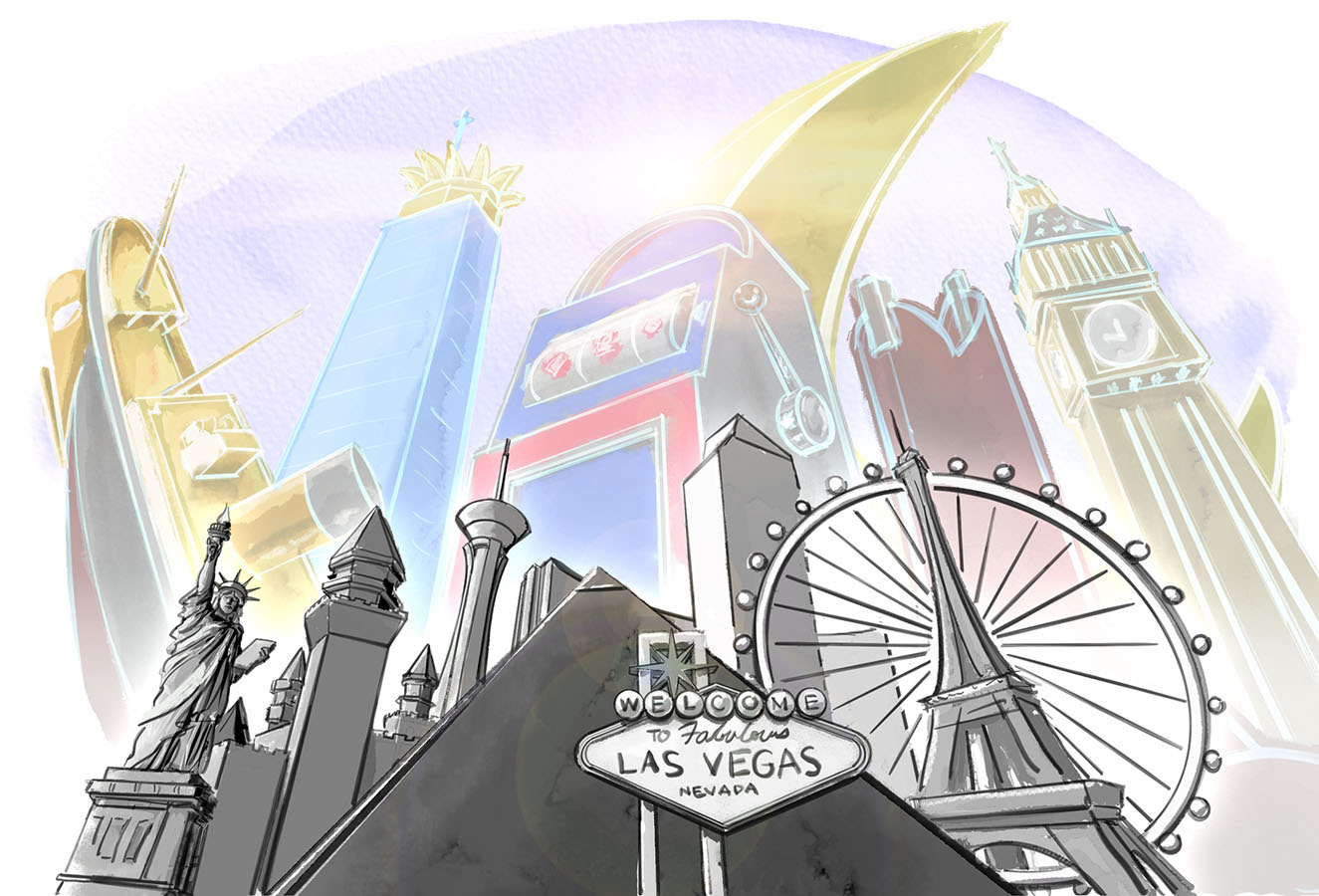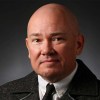“You lookin’ for that hotel with the marina and all the yachts? What you’ll wanna do is hang a left at that 200-foot slot machine over there, go past the Golden Gate Bridge, go past the other Golden Gate Bridge — don’t even get me started on those two — then it’s just the other side of the 400-foot tall cowboy boots. If you get to the Titanic-shaped hotel, you’ve gone too far.”
Somewhere out there in the multiverse, there’s a Strip where these resorts, some of the wilder ideas ever proposed for Las Vegas, weren’t derailed by the aftermath of the Sept. 11 attacks, the Great Recession or just plain ol’ common sense.
Our skyline already is ridiculous, in the absolute best possible way, with its pyramid, Eiffel Tower and Statue of Liberty. But it could’ve been downright wacky had these resorts, all of which were announced with varying degrees of fanfare, actually been built.
A hotel tower as tall as the Rio, but shaped like a cowboy boot? Sitting next to an identical one? That would’ve been nearly as unsightly as the dueling fake San Francisco resorts practically across Las Vegas Boulevard from each other. Plus, would those boots have clashed with the guitar-shaped hotel Hard Rock International wants to build at what’s currently The Mirage? Assuming that ever actually happens, that is.
Here’s a look at some of the resorts we missed out on over the decades, as well as a few bullets we dodged along the way:
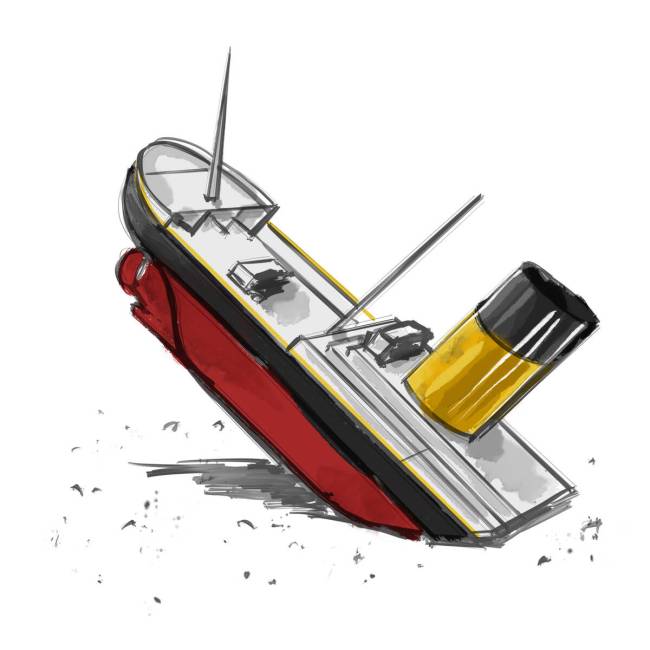
Titanic
In 1999, two years after Kate and Leo unleashed Titanic fever upon the world, gaming legend Bob Stupak announced he would build a 280-foot-tall re-creation of the doomed ocean liner — more than 100 feet taller than the original — on Las Vegas Boulevard, just south of Charleston, on the site of his Thunderbird hotel. (Not the original Thunderbird that debuted in 1948, but the second one, which opened in the 1960s as the Lotus Motel.)
Stupak, the promotional mastermind behind Vegas World and the Stratosphere, pulled out all the stops.
He wrote a Titanic-themed song — sample lyric: “In a frozen moment sealed in time, fate changed what was meant to be and sent us on our final cruise, on a cruise to infinity.” — for the initial press conference, had Robert Goulet record it and commissioned a music video from local grindhouse legend Ray Dennis Steckler, who directed such classics as “The Incredibly Strange Creatures Who Stopped Living and Became Mixed-Up Zombies.”
Take a moment to let that sink in.
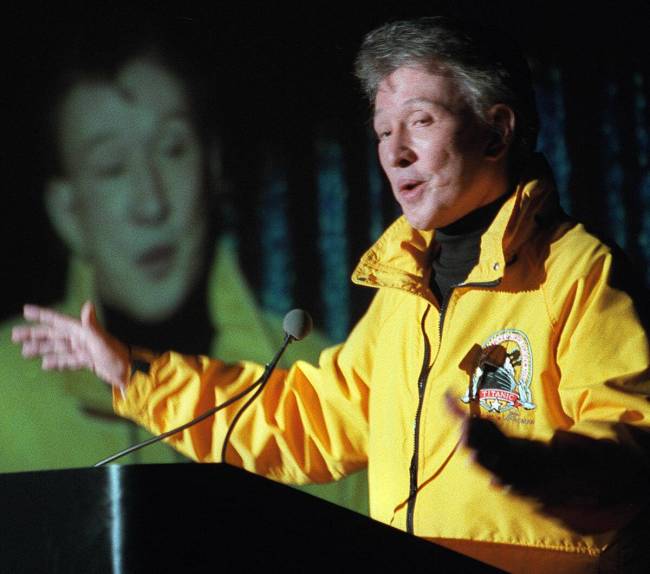
Stupak also purchased about $100,000 worth of stock in RMS Titanic Inc., the company that owned the salvage rights to the real Titanic, in hopes of bringing artifacts to the hotel.
In addition to 1,200 cabins, 800 of which would have been sold as timeshares, the $300 million to $400 million project would have boasted a parking garage modeled after Titanic’s home port of Southampton, England, as well as a retail complex shaped like an iceberg.
Neighbors were not amused.
“It has a certain visual blight to it,” one nearby homeowner said of the plans. Others were concerned about the “riffraff” it would attract. Then there was the idea of a fun-filled monument to a disaster that claimed more than 1,500 lives. The latter is one of at least a couple of reasons why there isn’t a Hindenburg Las Vegas floating above the Strip.
Stupak said he’d consider moving his Titanic from the east side of Las Vegas Boulevard to the west side, if that would help. He even offered to buy the homes of concerned neighbors at a premium.
In the end, Stupak’s Titanic was sunk by the Las Vegas City Council.

City By the Bay
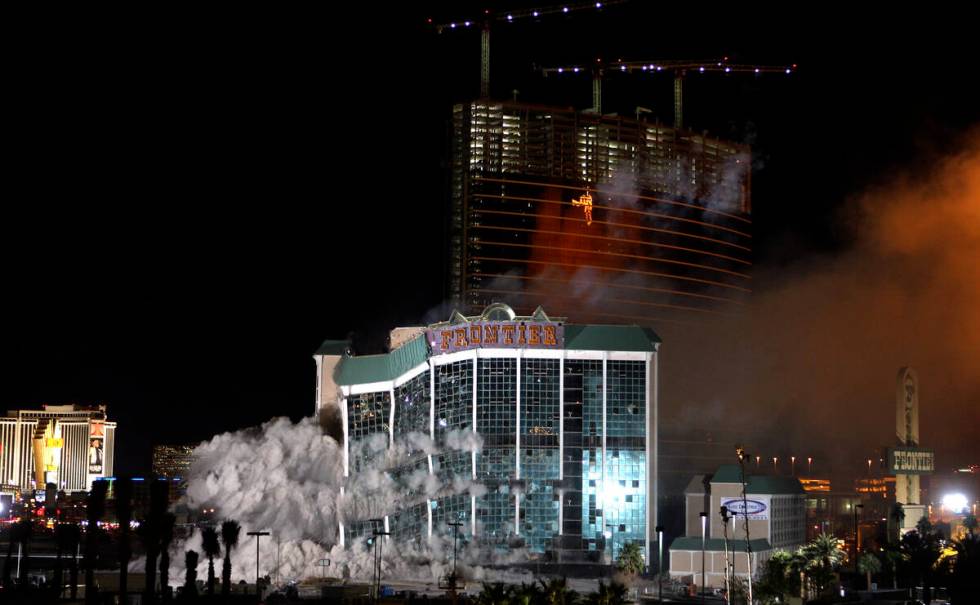
The New Frontier opened in 1942 and was the site of Elvis Presley’s Las Vegas debut and the home of Siegfried & Roy for seven years before they vanished, only to reappear over at The Mirage.
The property was showing its age, though, when Phil Ruffin acquired it in February 1998. He was ready for something new by January 2000, when he announced the casino, located between Fashion Show Mall and what’s now Resorts World, would make way for City By the Bay.
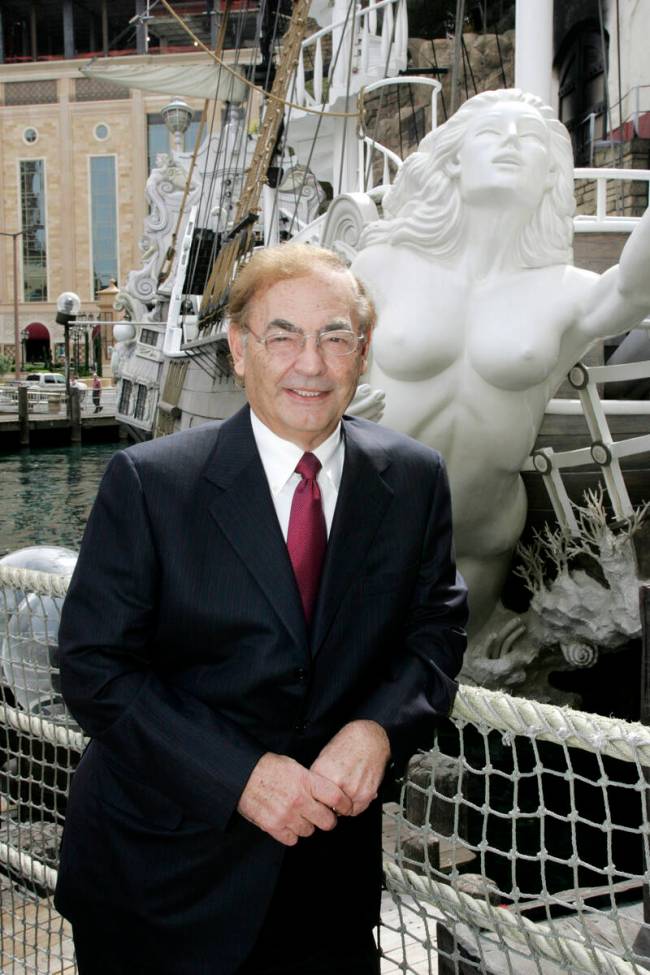
The $1 billion San Francisco-themed megaresort with 2,500 rooms would have featured re-creations of the Golden Gate Bridge, Chinatown, Lombard Street, the Coit Tower and Fisherman’s Wharf — “We’re going to duplicate the wharf right down to the boats in the water,” Ruffin said at the time — along with an Alcatraz restaurant and a Napa Valley winery.
Commercial real estate investor Luke Brugnara had a similar plan, conceived months before Ruffin’s announcement, for a casino inspired by his hometown of San Francisco. It was earmarked for the northeast corner of Las Vegas Boulevard and Convention Center Drive, where a Walgreens and a Ross Dress for Less now stand.
Remarkably, Brugnara didn’t back down, even though the San Francisco-themed properties would have been roughly a quarter mile from each other.
Despite having divulged little of his plans — the hotel would have had between 2,000 and 3,000 rooms, and the project would have cost between $600 million and $700 million — Brugnara said he was going ahead with his resort, regardless of what Ruffin did.
“I’m doing the casino,” Brugnara told us at the time, “and everything I say is going to happen, happens.”
(It didn’t happen.)
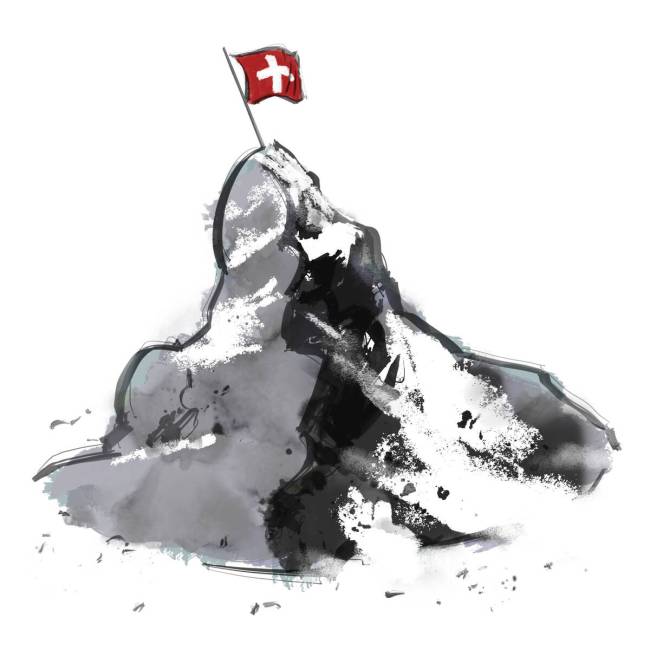
Montreux
By the time 2006 rolled around, the New Frontier was still open, and Ruffin had another plan: Montreux.
The $2 billion, 2,750-room resort would have had a Swiss theme befitting its namesake: the city near Lake Geneva that was home to the famed jazz festival.
Plans showed a meditative retreat and plenty of high-end shopping. Ruffin even hoped to bring an offshoot of the jazz fest to his hotel.
The words “Swiss” and “jazz” evidently weren’t dazzling Wall Street, though, so Ruffin, who would go on to purchase Treasure Island and Circus Circus, sold the following year.
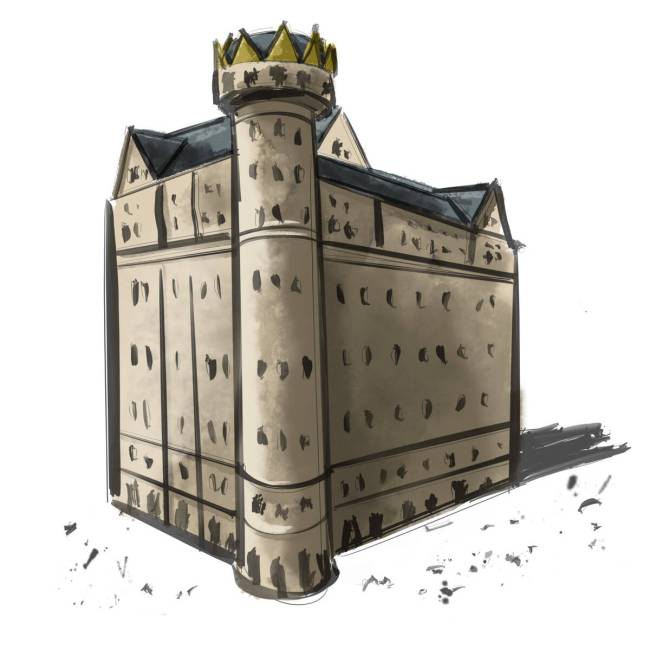
Plaza Las Vegas
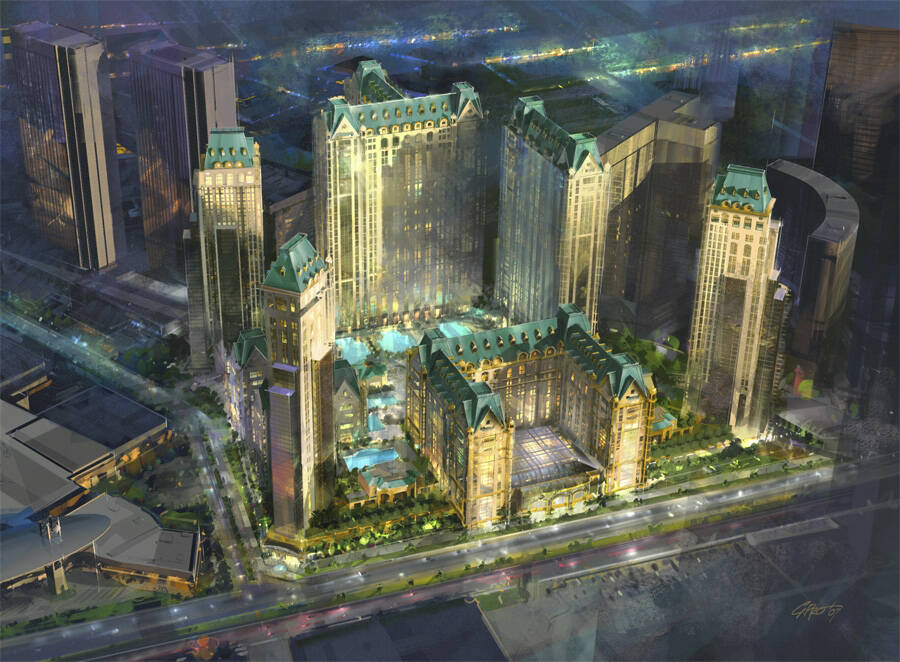
In 2007, El Ad Properties shelled out more than $1.2 billion — compared to the $167 million Ruffin paid nine years earlier — for the New Frontier and its 36 acres.
The Israeli-owned real estate investment group had recently purchased New York’s iconic Plaza Hotel and was looking to build a version of it on the Strip.
The Plaza Las Vegas would have had 4,100 hotel rooms and 2,600 condos spread out over seven high-rise towers at a cost of between $5 billion and $8 billion.
El Ad went to court with the owners of downtown’s Plaza and won the rights to use the name Plaza Las Vegas, but the plans eventually stalled — after the company imploded the New Frontier.
The site remains empty to this day.
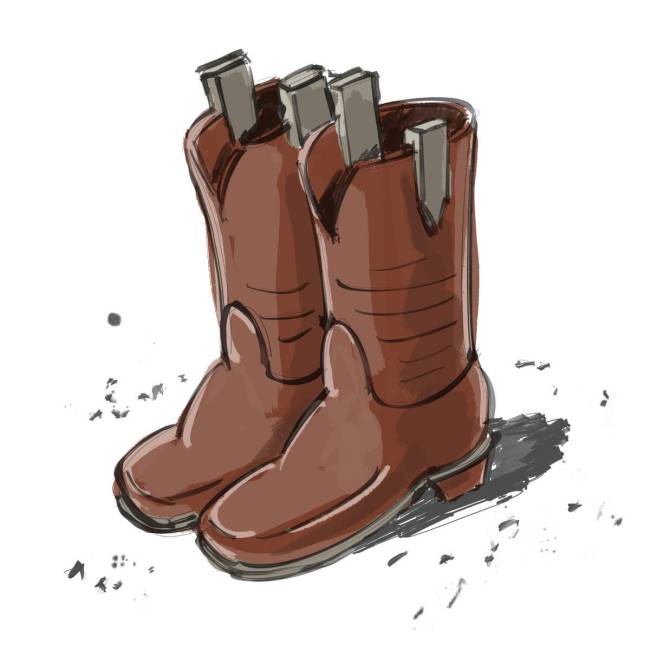
Countryland USA
The original Thunderbird, not the one that could’ve been Stupak’s Titanic, opened in 1948 as the fourth resort on the Strip, following the El Rancho, the Last Frontier and the Flamingo.
The Thunderbird hosted the city’s first Broadway show in 1961 with the Rodgers and Hammerstein musical “Flower Drum Song,” and at one point, its swimming pool was the largest in Nevada.
Following a confusing rebrand as the El Rancho, the hotel closed in 1992.
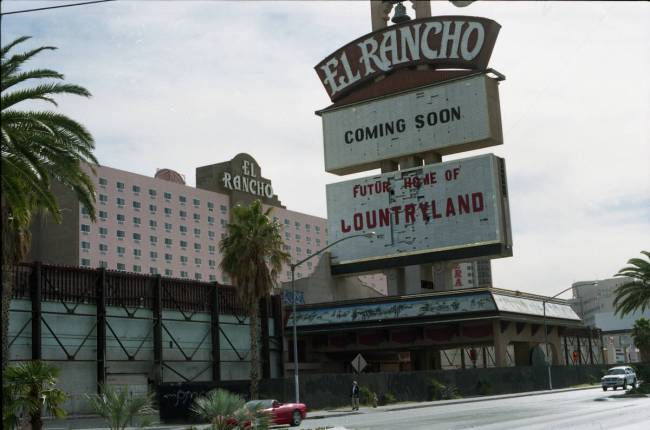
The following year, Las Vegas Entertainment Network Inc., a company formed to make and distribute TV shows about the city, announced it was buying the shuttered property. The plan was to renovate it and reopen it as Countryland USA.
Here, though, is where things get a little vague.
We reported numerous times that the new resort would feature a “pair of hotel towers shaped like cowboy boots,” with no additional details. In October 1993, the Chicago Tribune wrote that it would have “two 20-story towers that will resemble a gigantic pair of Western-style boots.” Twelve months later, Bloomberg said it would be “shaped like two 40-story cowboy boots.”
By 1995, the financially troubled project had roped in Texas-based investor John Bryan, whose toe-sucking escapades with Sarah Ferguson, the Duchess of York, recently had been splashed across British tabloids — actions that became a minor plot point on the current fifth season of “The Crown.”
Two years later, after a separate casino project fell through on the El Rancho site, Countryland USA was briefly pitched again, this time downscaled to simply having a 35-story sign shaped like cowboy boots.
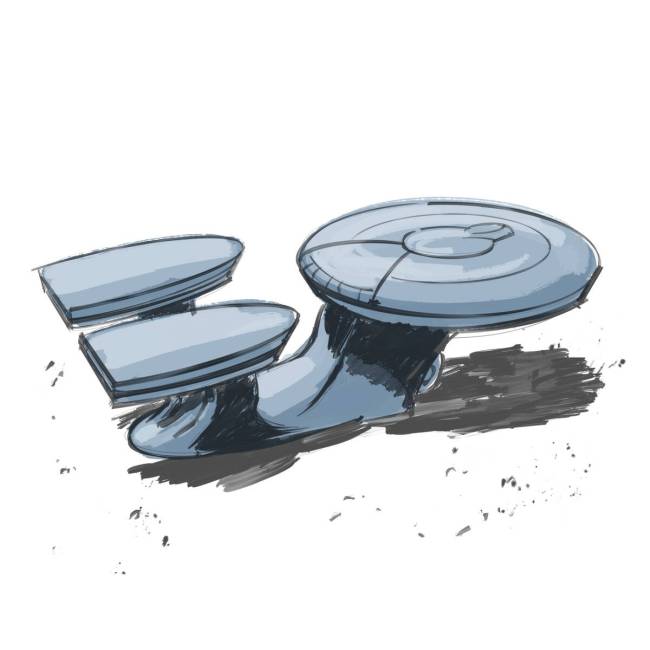
Starship Orion
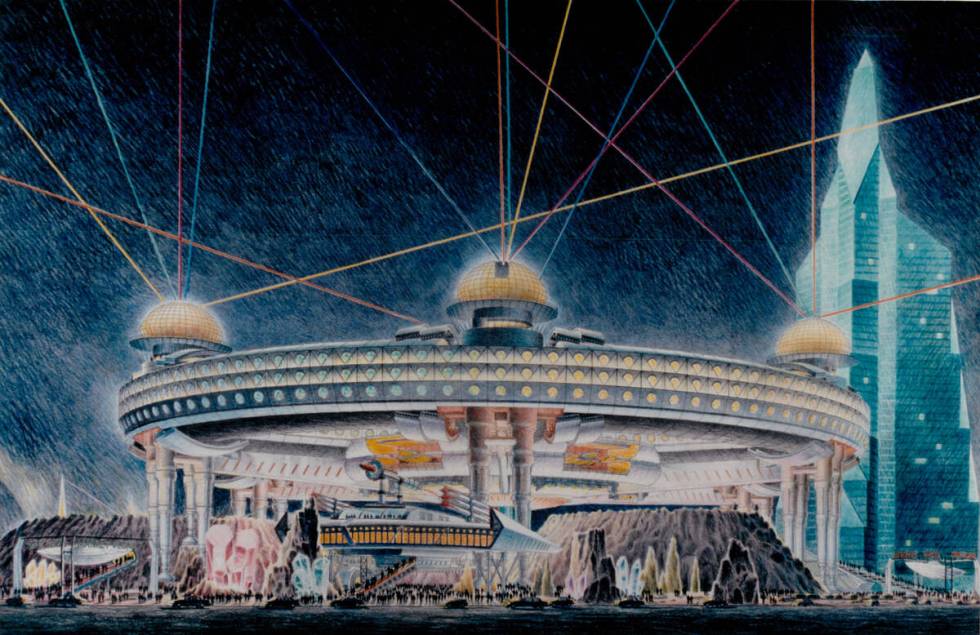
Between the failed Countryland USA projects, International Thoroughbred Breeders Inc. swung for the fences in 1996 with plans for Starship Orion, a $1 billion space-themed project with 2,400 hotel rooms.
“The project’s centerpiece,” we wrote at the time, “will be a ‘constellation-class outer-space ship,’ ” 750 feet in diameter, with “1,000 first-class passenger cabins.”
From there, seven separately owned and operated casinos, known as “the seven worlds of Orion,” would have branched out.
The whole thing was to be designed by the firm behind the National Air & Space Museum.
Also, there were plans for something referred to as an “alien circus.”
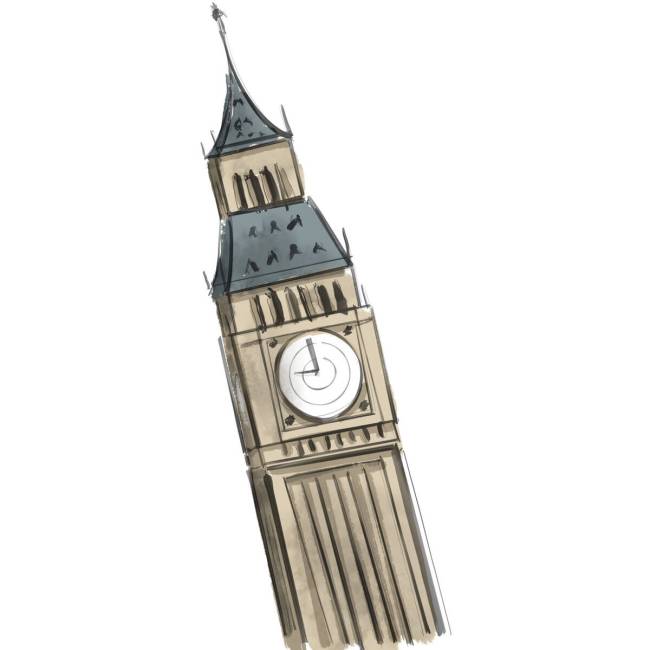
London calling
If we could have two San Franciscos, why not two Londons?
By 2000, the El Rancho was somehow still standing. Turnberry Associates bought it and demolished it that year, reportedly because the company didn’t want the residents of its in-the-works Turnberry Towers to look down on the blight.
The following year, Turnberry pitched a 44-story, 2,050-room London-themed behemoth that would have filled the site with re-creations of Big Ben, the Tower of London, Tower Bridge and Buckingham Palace, complete with a changing of the guard.
Also in 2001, World Port Resorts pushed for a 77-acre London-themed casino across Las Vegas Boulevard from Mandalay Bay that would have had its own Tower Bridge and a version of Royal Albert Hall.
More than two decades later, the El Rancho site is in the process of becoming the Fontainebleau, while the other site remains undeveloped.
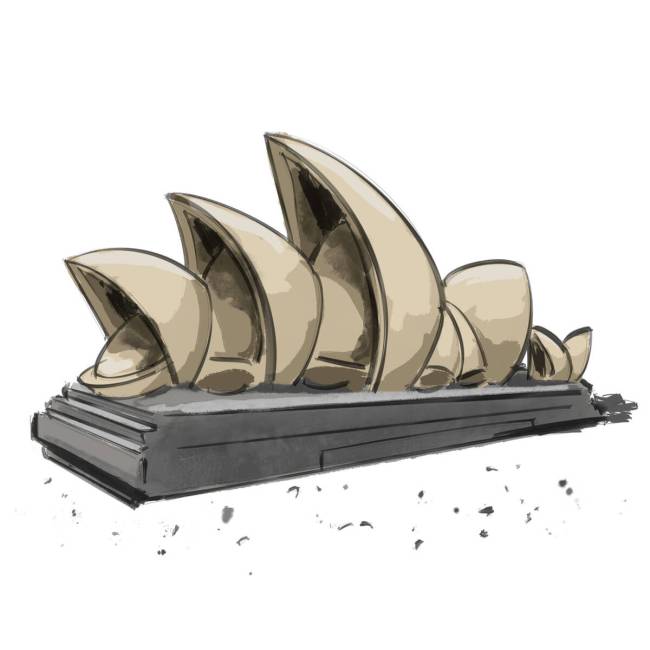
Palace of the Sea
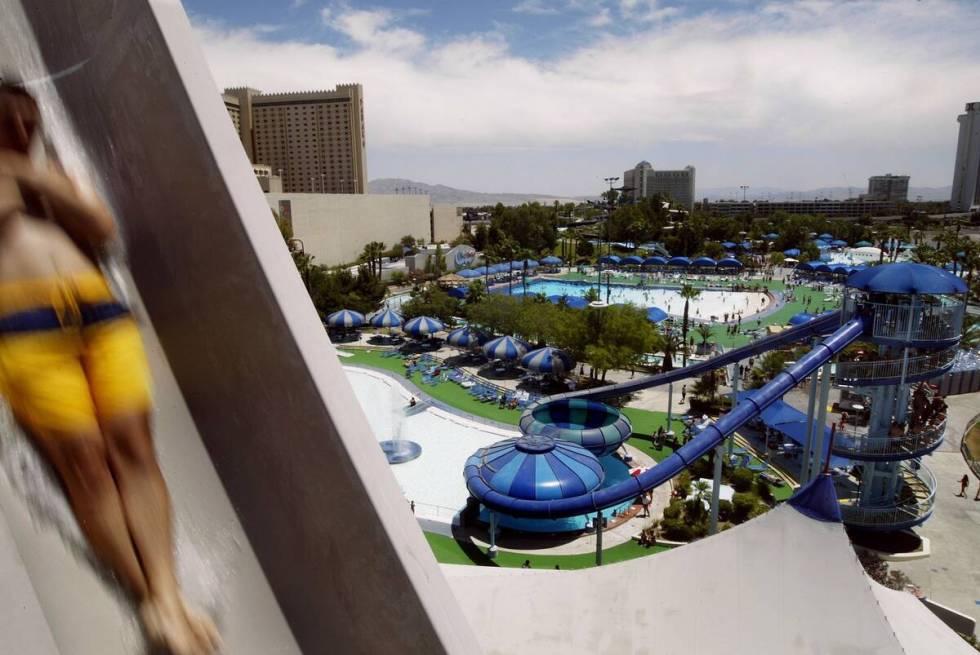
Wet ’n Wild was the place to be each summer for two decades, from 1984 right up until the real estate beneath it, between the Sahara and what will soon be the Fontainebleau, became too valuable.
That’s when, in 2004, Paul Lowden and his Archon Corp. presented plans for the Palace of the Sea on that site, months before the water park would open for what became its final season.
Palace of the Sea, with a vague theme of “mariner life,” would have had 3,002 rooms and a casino that resembled the Sydney Opera House.
What really set the proposal apart, though, was the plan for a marina with a pier and yachts that would serve as high-end suites.
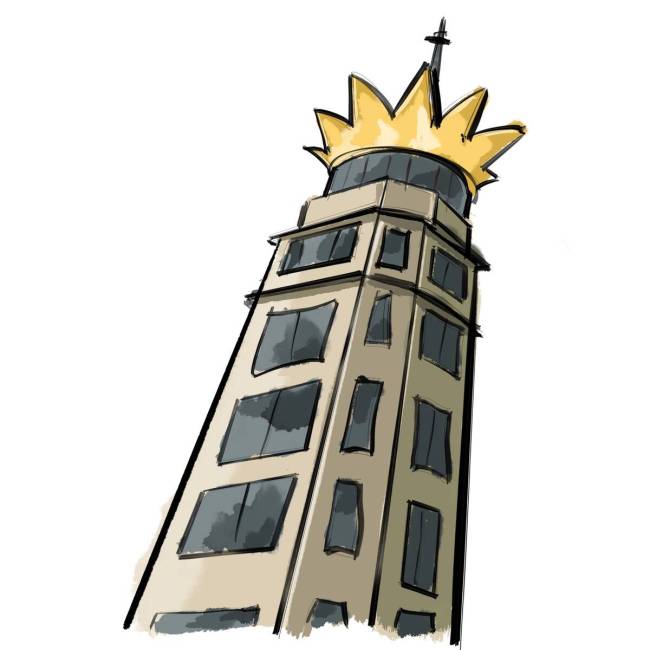
Crown Las Vegas
At 1,149 feet, the Strat is easily the tallest building in town.
In 2006, developers of Crown Las Vegas looked at that number and laughed. The Federal Aviation Administration, however, did not.
The $5 billion, 5,000-room resort would have been a massive 1,888 feet — the equivalent of placing the Strat atop the Fontainebleau. The FAA, though, said that height at that location, the former Wet ’n Wild site after Palace of the Sea fell through, would pose a hazard to air traffic.
Developer Christopher Milam lobbied for a different version of the Crown that would have been 1,150 feet — 12 inches taller than what was known at the time as the Stratosphere.
Unlike many of these proposals that just withered away, Crown Las Vegas was declared dead in 2008. Former UNLV basketball standout Jackie Robinson has been pursuing a hotel and arena project on that site since December 2013.
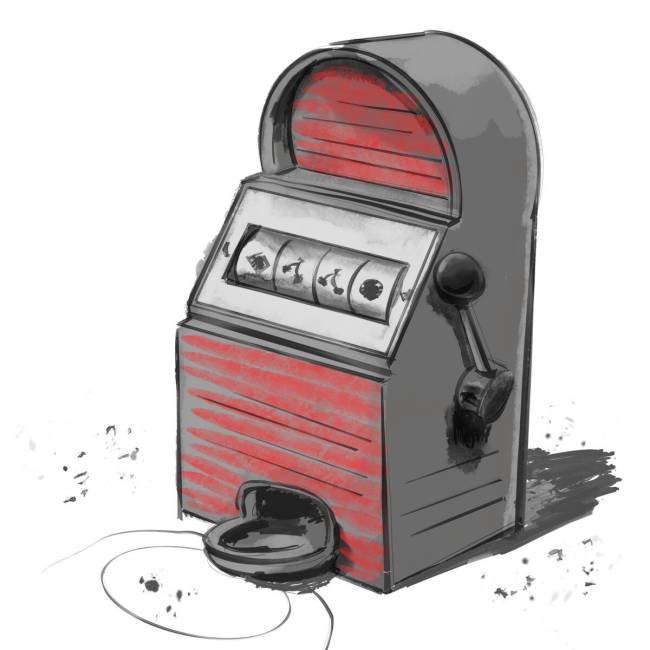
The World’s Biggest Slot Machine
Norm Jansen was a bit of a dreamer.
At various times, he owned downtown’s Pioneer Club, the land beneath Harrah’s Las Vegas and part of the California.
In 1989, Jansen pitched what would have been his masterpiece: a 21-story working slot machine with a 90-foot moving arm and six-story tall reels that would be constructed by a company that made Ferris wheels.
It was outrageous, yet distinctly Las Vegas.
The creation, dubbed the World’s Biggest Slot Machine, would have stood in front of his Slot Joynt, which was being folded into a Holiday Inn to form the Coney Island-themed casino known as the Boardwalk.
The giant slot machine was quickly rejected by the Clark County Commission. Still, Jansen held out hope.
“It’s not officially dead. But I’d say that it’s dying, that I probably won’t see it in my lifetime,” Jansen told us in the summer of 1995. “But I won’t stop hoping for it because it’s a dream, and you have to keep dreaming. That’s what this city is made of.”
Jansen died 18 months later. The Boardwalk, with its distinctive wooden roller coaster-and-clown face facade, was demolished in 2006 to make way for what’s now the Waldorf Astoria at CityCenter.
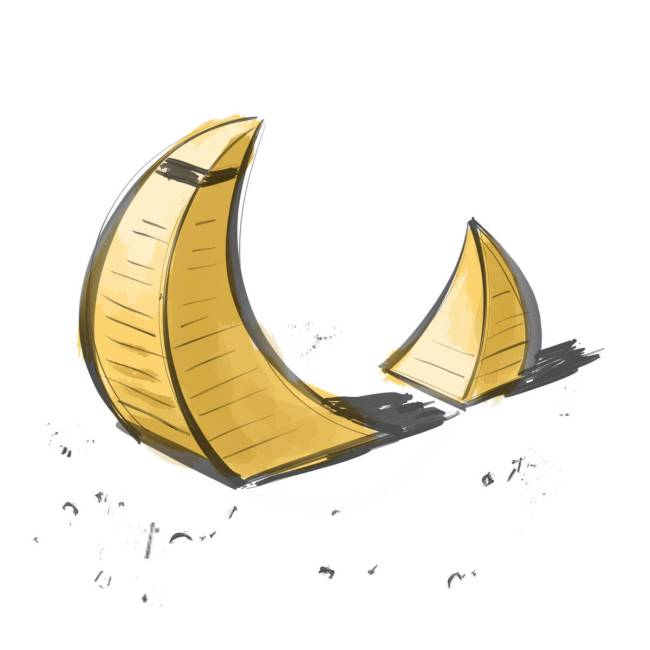
Moon
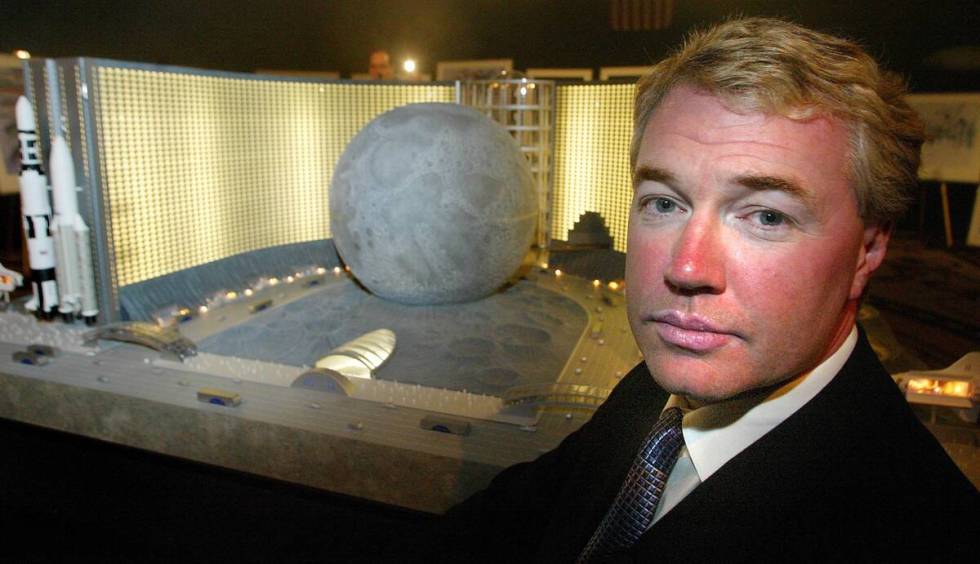
The biggest of these projects, by almost every metric, was so over-the-top, so unlikely to ever exist in the real world, that many locals saw through it as though it were a screen door.
The $5 billion Moon was brought to town in 2002 by Michael Henderson, a Canadian who co-founded the company that would become Lasik Vision but had never worked in the casino business.
Armed with a million-dollar scale model and a 20-minute film, as well as a seemingly endless supply of chutzpah, Henderson laid out his ideas for a lunar-themed resort that would blow past anything this city had ever seen — or seen since.
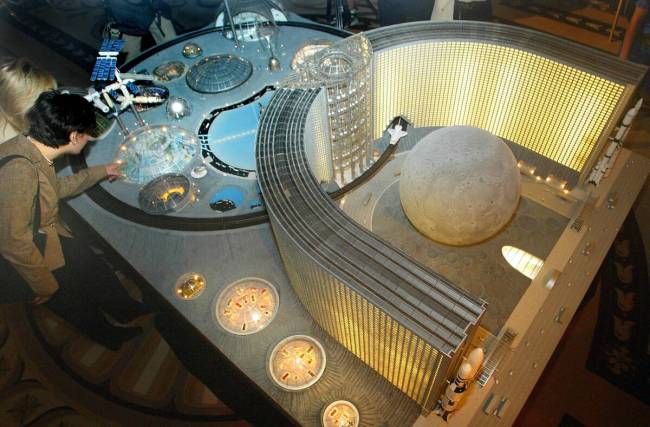
According to Henderson, Moon would:
• Cover 250 acres on an unspecified plot of land. That’s more than twice the size of CityCenter.
• Have 10,000 rooms. The Venetian/Palazzo complex has just over 7,000 and is among the largest hotels in the world.
• Include “thousands of shops.” The Forum Shops at Caesars has approximately 160 stores and restaurants.
• Feature a 60,000-seat concert venue. That’s almost exactly twice the size of the concert halls currently at Caesars Palace, the Cosmopolitan of Las Vegas, the Palms, Park MGM, Planet Hollywood Resort, Resorts World and Virgin Hotels Las Vegas — combined.
Local gaming experts chided us for even covering the announcement — from within our story covering the announcement.
UNLV’s Bill Thompson told us at the time that Henderson wasn’t the only one who was naive about Moon’s prospects. “Look at you and the other reporters writing about this guy and his idea. Who’s naive? He’s getting publicity for something that won’t happen.”
Even the story’s headline called the project “pure lunacy.”
Contact Christopher Lawrence at clawrence@reviewjournal.com or 702-380-4567. Follow @life_onthecouch on Twitter.




